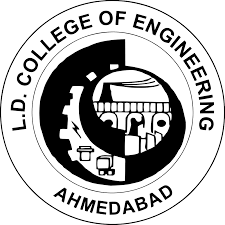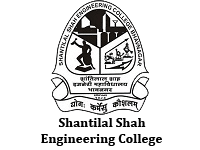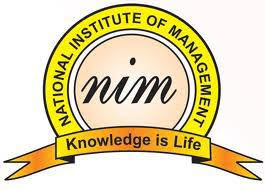Highlights: -
|
Diploma Name |
Post Graduate Diploma in Civil Engineering |
|
Level |
Postgraduate |
|
Diploma Duration |
1- 2 years |
|
Education mode |
Full time, Distance |
|
Eligibility Criteria |
Graduation in any discipline |
|
Admission process |
Merit base |
|
Fees for the entire duration |
Rs. 2,000 to Rs. 4.00 Lakhs |
Eligibility Criteria: -
- Candidates must complete graduation.
- They must have scored at least 50% marks. However, some colleges may not ask for any minimum percentage.
- Final-year candidates may also apply for admission on a provisional basis.
- Some colleges may also ask for work experience of 1-2 years.
Syllabus for Post Graduate Diploma in Civil Engineering:
The Post Graduate Diploma in Civil Engineering syllabus will vary from college to college, but the course aims and subjects shall remain the same; the subject distribution over the syllabus may differ, but the study matter remains consistent. Nevertheless, candidates should check the official website to know the complete syllabus. Here is a general guide to Post Graduate Diploma in Civil Engineering syllabus design, as commonly followed by Indian colleges:
|
Semester 1 |
Semester 2 |
|
Advanced Structural Analysis |
Advanced Reinforced Concrete Design |
|
Advanced Concrete Technology |
Advanced Foundation Engineering |
|
Geotechnical Engineering |
Highway and Pavement Design |
|
Transportation Engineering |
Water Resources Engineering |
|
Environmental Engineering |
Environmental Impact Assessment |
|
Construction Management and Project Planning |
Advanced Construction Techniques and Equipment |
|
Advanced Surveying and GIS |
Remote Sensing and GIS Applications in Civil Engineering |
|
Numerical Methods in Civil Engineering |
Finite Element Analysis in Civil Engineering |
Next step after Post Graduate Diploma in Civil Engineering: -
If a person wants to do further studies in Post Graduate Diploma in Civil Engineering to improve his/her knowledge and skills than he/she can go for the following courses: -
- Certification in Structural Engineering: Focuses on advanced structural analysis and design principles, such as Seismic Design, Structural Dynamics, and Performance-Based Design.
- Certification in Geotechnical Engineering: Geotechnical engineering certification covers Soil Mechanics, Foundation Engineering, Slope Stability Analysis, and Geotechnical Site Investigation Procedures.
- Certification in Transportation Engineering: Concentrates on transportation planning, traffic engineering, pavement design, and public transit systems.
- Certification in Environmental Engineering: Concentrates on water and wastewater treatment, air pollution control, solid waste management, and environmental impact assessment.
- Certification in Construction Management: Teaches project planning, scheduling, budgeting, and risk management skills particular to the construction sector.
- Certification in building Materials Testing and Quality Control: Teaches you how to test and control building materials like Concrete, Asphalt, Soil, and Aggregates.
- Structural Health Monitoring and Non-Destructive Testing (NDT) Certification: This certification covers strategies for employing sensors and NDT methods to monitor the structural health of bridges, buildings, and other infrastructure assets.
- Certification in Risk & Disaster Management: Focuses on risk assessment, disaster preparedness, emergency response planning, and recovery methods for both natural and man-made disasters.
- GIS and Remote Sensing Certification: This certification teaches you how to use Geographic Information Systems (GIS) and remote sensing technologies for Spatial Data Processing, Mapping, and Visualisation in Civil Engineering.
.webp)
FAQs
- What to do after PGD in Civil Engineering?
After pursuing PGD in Civil Engineering program, you can opt for jobs as a Project Manager, Civil Engineer, Structural Engineer etc. or you can also go for further studies such as M.Tech in Civil Engineering.
- Is Post Graduate Diploma Civil Engineering a good career option?
Yes; Post Graduate Diploma in Civil Engineering is a good career option and promises students a sound career in this field. One can become a Civil Engineer, Structural Engineer, Plant Manager etc. on completion of this course.
- Is Post Graduate Diploma Civil Engineering easy?
Post Graduate Diploma Civil Engineering is not at all difficult. It basically requires hard work. If you are clear with your mathematical concepts then it will seem easy to you.
- What is the scope of doing a Postgraduate Diploma in Civil Engineering?
On completion of Post Graduate Diploma Civil Engineering course, you can opt for jobs in various govt. or private sectors such as construction sites, retail industry, manufacturing units and many more.
- What does a Civil Engineer do?
A Civil Engineer is responsible for planning, designing and supervising the construction of facilities essential to modern life like Bridges, Highways, Offshore Buildings, Colleges & Schools, Airports, Dams, Water Facilities and Sewage Systems.
- What software tools are taught in the Post Graduate Diploma Civil Engineering program?
Students often learn software tools like AutoCAD for drafting, SAP2000 or ETABS for Structural Analysis and Design, STAAD Pro, Primavera for Project Management, and GIS (Geographic Information Systems) for Spatial Analysis.
Other specialisation in Post Graduate Diploma in Engineering:
Post Graduate Diploma in Computer Science, Post Graduate Diploma in Electrical Engineering.






